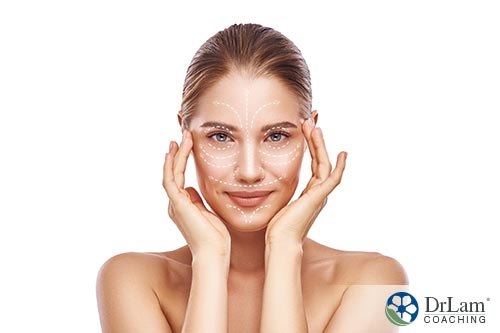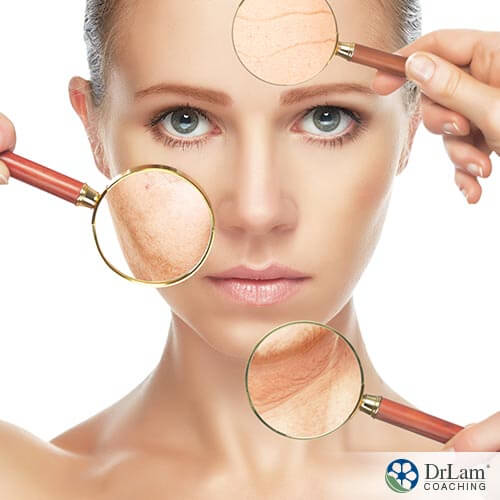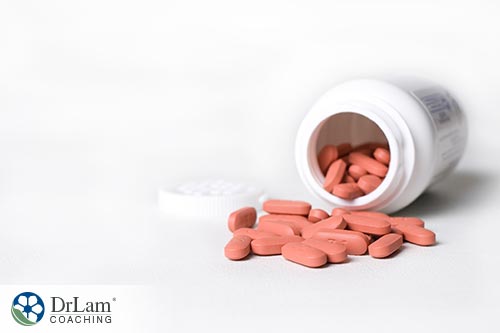Have you been bothered by skin conditions such as acne, eczema, or psoriasis? Did you wonder if you could ever get rid of them? The skin is believed to be a difficult organ to manage. Vitamins play an important role in the maintenance of your health and wellbeing. Vitamin A is crucial for maintaining optimal levels of skin health, appearance, and function. Treating acne with vitamin A has gained popularity in the recent past. Let's discuss how vitamin A works against acne and its effect on your body.
 Vitamin A is an essential nutrient required for healthy skin, good vision, immunity, and growth in your body. Vitamin A is a fat-soluble vitamin. That means it easily dissolves in the fats in your body and can be stored in the body. The two types of vitamin A: retinoids and carotenoids. These are converted to the active form, retinol in the liver. It is either stored in the liver or carried by the lymphatic system to cells throughout the body.
Vitamin A is an essential nutrient required for healthy skin, good vision, immunity, and growth in your body. Vitamin A is a fat-soluble vitamin. That means it easily dissolves in the fats in your body and can be stored in the body. The two types of vitamin A: retinoids and carotenoids. These are converted to the active form, retinol in the liver. It is either stored in the liver or carried by the lymphatic system to cells throughout the body.
Vitamin A is required by cells for growth and differentiation of immature cells into mature. It maintains the integrity and function of epithelial tissues including skin, conjunctiva, sinuses, gastrointestinal, respiratory, and genitourinary tracts. Treating acne with vitamin A is one of the important clinical applications based on this function.
The other important functions of vitamin A include acting as an antioxidant to enhance immunity, helping in dark adaptation in night vision, facilitating gene expression, reproduction, and cell growth.
The benefits of treating acne with vitamin A is related to its cell growth-promoting, and antioxidant function. How you use it determines the action of vitamin A. When you consume it as a food source, it promotes the overall health of the skin and body. On the other hand, topical preparations target acne directly. Vitamin A resolves acne by:
Researchers have extensively studied the use of vitamin A in its various forms, whether used orally or topically. Earlier evidence suggests that vitamin A checks the progress of acne to its severe form. However, it did not show oral vitamin A as a productive treatment of acne.
Recently, researchers have shown that the oral use of natural compounds can enhance skin health. Vitamin A in the form of beta-carotene is known to prevent cellular damage, premature skin aging, and skin cancer. Similarly, researchers conducted a clinical trial with 50 patients, between ages 12-35 years. Half of the patients were treated with isotretinoin orally and the other half with the local isotretinoin. The patients were followed up every two months for two years. The results showed that oral vitamin A is as effective as a topical application for managing acne. However, several studies have endorsed treating acne with vitamin A in the form of topical preparation.
In other words, treating acne with vitamin A seems to be more convincing as a topical preparation. Nevertheless, oral vitamin A is advantageous for overall skin health.

According to the U.S. Food and Drug Administration (FDA), the recommended dietary allowance for men is 900 mcg and for women, it is 700 mcg per day. You should be careful about the risks associated with treating acne with vitamin A. Even a single large dose greater than 200,000 mcg can cause nausea, vomiting, vertigo, blurry vision. Similarly, consumption of more than 10,000 mcg a day of oral vitamin A supplements on a long-term basis can cause thinning of bones, joint pain, liver damage, headache, diarrhea, nausea, skin irritation, and birth defects. Besides, in case you are pregnant or planning to get pregnant, always seek advice from your health coach. Increased use of vitamin A during pregnancy is associated with birth defects.
The goal of treating acne with vitamin A is to reduce inflammation in your body. Inflammation is your body’s response to stress which can be physical, emotional, or psychological stress.
The Inflammation Circuit is one of the six circuits that are a part of your NeuroEndoMetabolic (NEM) stress response. Research has suggested that the use of vitamin A in acne is due to its anti-inflammatory and antioxidant properties. Acne is a chronic inflammatory disease of the oil-producing glands (sebaceous glands) of your skin. Sebum or oil, a product of your oil glands, reaches the skin’s surface through a thin channel called a follicle. The oil removes the dead skin cells from the skin. Acne occurs when dead skin cells, excess oil, and sometimes bacteria block the pores of the skin.
The acne lesions can be inflammatory that can be superficial or deep or may arise from non-inflamed lesions known as comedones or whiteheads. The ratio of bacterial counts in patients with acne, and without acne, is very high. The bacteria grow at a slow rate. They may not be able to multiply in follicles in which the sebum excretion rate is high, since the end products of bacterial metabolism flow away with the sebum. When a follicle becomes blocked, it acts like a closed culture system from which bacteria and their end products cannot escape.
Vitamin A toxicity can occur when you have too much vitamin A in your body. This condition usually develops when you consume high doses of Vitamin A supplements and anti-acne medications. It may be acute or chronic. Acute toxicity occurs when you consume large amounts of vitamin A over a short time, generally within a few hours or days. Chronic toxicity occurs when large amounts of vitamin A accumulate in your body over a prolonged time. Symptoms include changes to vision, bone pain, skin changes, increased pressure in brain and liver damage.
Liver damage can occur when the liver can no longer handle an increased amount of Vitamin A. Since the liver is put on overdrive, the body is flooded with more downstream metabolites, both inert and reactive. These lead to increased congestion in the surrounding extracellular matrix. As this condition worsens, the sluggish liver develops which further triggers inflammation. In other words, the detoxification function of the liver becomes dysfunctional.
Management of vitamin A toxicity involves stopping vitamin A containing medications. You may use a detox diet for detoxification or elimination of vitamin A from the system. But, if you suffer from adrenal fatigue, please get a healthcare professional to guide you in the detoxification process.
The first step in fighting acne is to make changes in your diet. You should exclude foods that increase the chances of break-out such as sugar and dairy and include vitamin A-rich foods. These include:
Vitamin A supplements available commercially are good sources of vitamin A. They restore the health of your skin and help with the general function of the body. However, you must consult your health coach before starting them to avoid the risk of toxicity.
The topical products containing vitamin A are excellent options for treating acne with vitamin A. They are available in the form of creams or serum. It is essential to start their use gradually to allow your skin to adapt to the product. This decreases the risk of side effects such as redness, peeling, or increased sensitivity to the sun. Avoid exposure to sun while you are using topical products and wear an oil-free sunscreen to check sun damage when outdoors.
 In case, you are suffering from acne and have concerns about your general well-being, some things which you can do are:
In case, you are suffering from acne and have concerns about your general well-being, some things which you can do are:
No matter what plan of action you decide to take, however, please seek advice from your healthcare educator. They will assess your particular situation and recommend the correct dosage of vitamin A for you.
If you would like to get additional information or need assistance with treating acne with vitamin A, the team at Dr. Lam Coaching can help. We offer a free** no-obligation phone consultation at +1-626-571-1234 where we will privately discuss your symptoms and various appropriate choices. You can also send us a question through our Ask The Doctor system by clicking here.
© Copyright 2021 Michael Lam, M.D. All Rights Reserved.
Treating acne with vitamin A promotes the health of your skin and helps to maintain immunity. It can be used in food, as a supplement, and in topical preparations. It acts as an anti-inflammatory and antioxidant agent which forms the basis of its action and benefits in treating acne.
